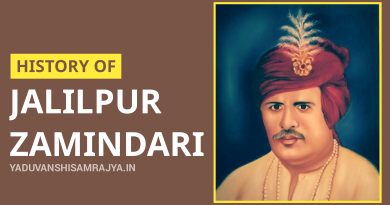Rai Bahadur Keshav Prasad Mandal
Rai Bahadur Keshav Prasad Mandal, a prominent figure in the history of Bihar, was a zamindar, philanthropist, and an honorary magistrate. Keshav Prasad Mandal’s life and contributions stand as an inspiring example of a multifaceted individual who made a significant impact on his community and society at large.

Early Life and Education
Rai Bahadur Keshav Prasad Mandal was born in a elite family in Ranipatti, Madhepura. He was the third son of Babu Basant Lal Mandal, who had connections with the zamindar Ahir family controlling the Ranipatti Estate. His mother belonged to the zamindar family of Murho Estate. He had two elder brothers named Babu Saryu Prasad Mandal and Babu Ananta Prasad Mandal, and a younger brother named Babu Mahavir Mandal. The influential Babu Gurdayal Mandal of the Murho estate, who was his maternal grandfather, played an significant role in his upbringing.
Keshav Prasad Mandal, after receiving primary education from Madhepura, received higher education from Calcutta University.
His Estate
- Inheritance and Land Ownership
Rai Bahadur Keshav Prasad Mandal inherited family land in Ranipatti from his father and later a share of the Murho Estate, which was around 4,500 acres of land from his maternal grandmother as a gift deed in 1925. This combination of assets made him a substantial landowner in the region and this consolidation of resources allowed him to wield significant influence and economic power.
Career
- Magistrate and Honors
Rai Bahadur Keshav Prasad Mandal served as an honorary magistrate with an office behind the SDO court in Madhepura, Bihar. Renowned for his honesty and integrity, he dispensed justice impartially and even took strict measures when necessary, such as punishing a family member when found guilty.
His influence and respect were such that a mere mention of his arrival at the train station would halt the train, a testament to his powerful presence. For his dedicated service, the British Government honored him with the titles of Rai Saheb and Rai Bahadur, along with badges of recognition. Notably, he never accepted a salary for his role as a magistrate, highlighting his commitment to public service.
- Role in AIYM
Rai Bahadur Keshav Prasad Mandal was a founding member of the All India Yadav Mahasabha, an organization dedicated to the welfare of the Yadav community. He contributed financially to the social development of his fellow caste members, a reflection of his commitment to the well-being of his community.
In 1927, he participated in the Rewari Conference of the Yadava Mahasabha, showcasing his active involvement in community initiatives.
Philanthropy
Keshav Prasad Mandal had a deep-rooted commitment to education, especially women’s education. He donated substantial land for several schools, including the Keshav Kanya High School in Madhepura, which remains a significant educational institution. His generous contributions extended to Mahavir High School and Hansavatti Middle School, where he bore construction expenses, demonstrating his dedication to improving access to quality education.

